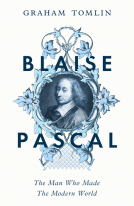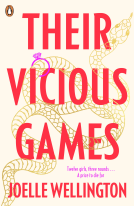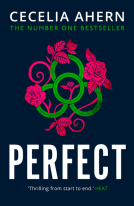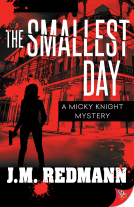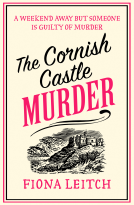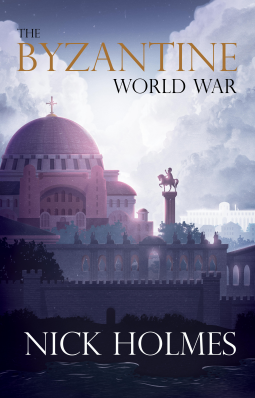
The Byzantine World War
by Nick Holmes
This title was previously available on NetGalley and is now archived.
Send NetGalley books directly to your Kindle or Kindle app
1
To read on a Kindle or Kindle app, please add kindle@netgalley.com as an approved email address to receive files in your Amazon account. Click here for step-by-step instructions.
2
Also find your Kindle email address within your Amazon account, and enter it here.
Pub Date 28 May 2019 | Archive Date 3 Oct 2019
Talking about this book? Use #TheByzantineWorldWar #NetGalley. More hashtag tips!
Description
The Crusades shook the world. But why did they happen?
Their origins are revealed in a new light. As part of a medieval world war that stretched from Asia to Europe. At its centre was an ancient empire – Byzantium.
Told for the first time as a single, linked narrative are three great events that changed history: the fall of Byzantium in the eleventh century, the epic campaign of the First Crusade and the origins of modern Turkey.
Nick Holmes not only presents the First Crusade in a wider global context but he also puts forwards new interpretations of the original sources, suggesting that its success was in fact largely accidental, and that the central role of Byzantium in the Crusades has been underestimated.
A Note From the Publisher
Available Editions
| EDITION | Ebook |
| ISBN | 9781838598921 |
| PRICE | US$2.99 (USD) |
| PAGES | 200 |
Featured Reviews
 Reviewer 34846
Reviewer 34846
Excellent! Fascinating and easy to read.
This is a great book to give an introduction to the history of the first crusade for readers of historical fiction.
 Reviewer 545051
Reviewer 545051
Ah this is a nice piece of nonfiction which reads more like historical fiction. I'm not usually a fan of historical fiction but I enjoyed this a lot. Interesting and easy to read!
 Shelly H, Reviewer
Shelly H, Reviewer
I am a history aficionado. Admittedly, I haven’t read many history books in the last year or so, so I was eager to dive back in. I am glad I chose, The Byzantine World War. Anatolia, Byzantium, The Ottoman Empire, Turkey…this region is steeped in history and culture and has always fascinated me. Author Nick Homes does a superb job telling the story of the fall of Byzantium, the First Crusade and the modern origins of Turkey. His writing style, rather than dry and monotonous like many history books, is conversational and engaging. I especially appreciated the comprehensive yet succinct chronology of the Byzantine Empire and the list of rulers by year included at the end of the book.
 zeb k, Reviewer
zeb k, Reviewer
The war that is mentioned as a world war is mainly from just before the First Crusade to just after the fall of the Crusader Kingdoms (in the late 1200s). Though Byzantium (the Eastern Roman Empire) didn't fall until 1453, after the fall of the Crusaders, the Byzantine's had lost the homeland of Anatolia and were just the area around Constantinople, with mercenary armies to protect them.
The main coverage is a narrative of the beginning of the ERE continually losing more and more of their easternmost empire to the Seljek Turks. After the fall of the Crusader Kingdoms, the Turks were constantly attacking across Armenia and Cappadocia. After the defeat of ERE at the Battle of Manikurt, the Seljuks began to slowly absorb the ERE lands of Eastern Anatolia.
The narrative of the First Crusades and the building of the Latin Kingdoms in the Outrmere (the Holy land, Antioch, Nicea and Syria), that only lasted one hundred years, after which the Holy Land was lost. The Second Crusade didn't even make it to Jerusalem. The Fourth Crusade led to the sacking of Constantinople in 1200, marked the end of the ERE, they were just waiting for the last walls to be destroyed.
 Colin M, Reviewer
Colin M, Reviewer
The oddly titled Byzantine World War mostly covers the rule of Emperor Romanos IV Diogenes and his betrayal and untimely death at the hands of the Doukas family, which led to the demise of the Eastern Roman Empire. The book continues with a brief continuation into the Crusades, with the Fourth Crusade actually sacking Constantinople, the Empire's seat of power. Oddly titled because the battles and politics were centred around the Levant and modern day Turkey - European and Islamic mercenaries were used, such as Saxons, Normans, Franks and the Uzes, but a 'world war' is a adding marketing grandeur!
This is an excellent book. Holmes's style is chatty without being whimsical, and his conclusions are garnered from multiple sources, even contradicting some well-established theories. I especially enjoyed the political back story running throughout, how incompetent, self-serving schemers were willing to destroy a leader even though he was the last hope of a declining empire. It reminded me of the UK's Brexit - populist politicians whipping up the country to commit national suicide.
A very good book, very readable, and very engaging.
Book supplied by Netgalley for an honest review.
 Reviewer 153322
Reviewer 153322
This is a good, popular introduction to a much more interlinked and globalized (the "world war" bit is exaggerated, but I get the point) era of the Crusades than most people ever encountered in a history course or popular culture. Holmes uses new studies of the greater central Asian region to understand how actions within and by the Cumans, Seljuk turks and Arabs (not to mention mercenary Rus and Normans), in combination with internal politics and economics of the Byzantine Empire unraveled the last vestiges of Roman authority in Anatolia and opened the call for western Europeans (who, Holmes doesn't get into at any depth, had their own organizational reasons for sending their most violent and agitating far away to fight) to come wage holy war in the middle east. As usual in popular books, the footnotes and sources are in the back and minimal, so you're left guessing how Holmes interpreted the sources and what they are.
 Reviewer 267123
Reviewer 267123
Having minimal knowledge of the Byzantine empire, I found this book quite interesting. The depictions and the information presented are relatable in this well-written book.
 Alexandra R, Reviewer
Alexandra R, Reviewer
A good start off point. Introduced to a number of people and events. A history of the ups and downs of the empire. INterest for those who like medieval history or war history. easy to understand to what is going on.
 Brian K, Reviewer
Brian K, Reviewer
The Byzantine World War describes the struggle between the Byzantine Empire and the Seljuk Turks during the eleventh century, and the events of the First Crusade that arose following the Emperor Alexius Comnenus's appeal to the West for aid.
While the events of the First Crusade have been examined in great detail by historians, Nick Holmes sets them within the context of the larger struggle for dominion in Eastern Europe and Asia, highlighting the impact of the fractured politics of Byzantium on individual battles, picking out the critical moments as the balance of power ebbs and flows and, in particular, reassessing the failure of the emperor Romanus IV Diogenes, whom, he suggests, might have stemmed the Turkish tide but for betrayal from within the Byzantium nobility.
There's an array of colourful characters: emperors, sultans, kings ,popes, caliphs, nobles, war lords and mercenaries. I would have preferred a little more background on some of them and a little less detail of the individual battles. In places, also, I felt the tone could have been more objective. Nonetheless, this is a well-researched and vivid account of one of the defining conflicts in world history.
 Leslie G, Book Trade Professional
Leslie G, Book Trade Professional
Very readable, with fix on history as a series of conflicts, this comprehensive but not overly dense book takes us back through history of the byzantine empire. He includes snippets of personalities and family connections
but most intriguingly political and war strategies. Ordinary life is not his theme but a wonderful dramatic sense of changing times .. this reads like absorbing historical fiction .. but with a theme of how individuals can change the course of real things for a few different future. Recommended to get an informed, intelligent fix on this subject ...
 Anne M, Reviewer
Anne M, Reviewer
This is an interesting and well written book - even if the choice of "world war" is an odd title. There is a lot packed into this book - and the unusual people and place names sometimes make it hard to keep up but it is well worth it. Mr Holmes tells a complex story as if it were fiction and the narrative races along. We are far into the book before the crusades are mentioned as the history of Byzantine is well covered in its own right. I learned a lot and it didn't feel like learning.
If you are interested in the history of the East and how the Crusades could come about and how cruel the world could be in the past, then this is the book for you. It is well researched and written for an intelligent audience but with a bit of perseverance and interest, anyone will get lots out of this book.
I was given a copy of this book by Netgalley in return for an honest review.
 Jane A, Educator
Jane A, Educator
The Byzantine World War is a compelling, engaging book for historians and general readers alike. It is meticulously researched and uses original sources to clarify three seminal events and how they are tied together: the fall of Byzantium in the 1000s, the rise of and reasons for the first Crusade, and the establishment of modern Turkey. Holmes' vivid descriptions of battles and alliances and prominent figures in this ongoing war are illuminating, educational, and keep the reader eagerly wondering what will happen next in this web of war. It is highly recommended.
 Sam L, Reviewer
Sam L, Reviewer
Read this and more book Reviews at It's Good To Read - Link: http://ebookwormssite.wordpress.com
Summary:
An interesting and thought-provoking overview of that most enigmatic of empires, Byzantium. It deals specifically with the hundred years or so before and including the First Crusade, and makes a compelling argument to treat the desperate defence of Byzantium, and the prosecution of the Crusade as the real first world war.
Main Characters:
Romanus Diogenes: 1068-71: A warrior Emperor, who fought the battle of Manzikert, but was betrayed.
Michael Doukas: Emperor who followed Diogenes. The most apt comparison would be chalk & cheese.
Alp Arslan: Seljuk Sultan who opposed Diogenes at Manzikert.
Basil II: 976-1025: Emperor before Diogenes.
Minor Characters:
Pope Urban II: He called for the First Crusade, 1095.
Tughril: Great Sultan, 1038-1063.
Plot:
Byzantium, with its capital Constantinople, has always fascinated me. It has an intensely complex history, and some of the greatest characters to have lived.
In this novel, the author tells of the events leading up to the First Crusade, in the eleventh century. He breaks the book into two sections, the first dealing with the decline of the Empire in the hundred years or so from Basil II, then to the role that Byzantium played in the build-up to the First Crusade.
The book is concise, and gives a clear timeline, with enough information on the characters and events as they play out to make the events come alive. The author did not set out to compile a comprehensive study, but rather to give a well-founded guide to the era.
The author takes a contrarian view of the emperor Diogenes, depicting him in the absolute opposite terms to how he has been described throughout history. The author blames this misrepresentation on the Doukai, the family that replaced Diogenes as emperor, and sullied his name. The author writes of a seasoned army general, who came to power and began to re-organise and re-vamp the Roman Army (we call them Byzantines – they called themselves Romans), which due to internal conflict amongst the aristocracy, had become a pale shadow of its former self.
Through the author’s eyes, we see how close Diogenes came to writing a new history of Anatolia, and potentially of the West. We also see the reasons behind his downfall.
The author also deals with the various waves of nomads and mercenaries that swept through this troubled area, and the powerful personalities that drove the Crusaders to the gates of Jerusalem. Again, he succinctly gives an overview of the political currents and pressures, and the short-sightedness of supposed leaders.
What I Liked:
The author being unequivocal in his defence of the maligned Diogenes.
The engaging writing style
The coherence the author brought to the timeline, while making t an engaging read.
What I Didn’t Like:
Nothing – I really enjoyed it.
Overall:
A very good read, and an excellent primer for those who want to delve further into this time. It will entertain and inform, with some great insights into human behaviour. Absolutely recommended.
Acknowledgements:
Thanks to Matador, Troubador Publishing and NetGalley, who gave me a free copy of the book in return for an honest and objective review.
 Michelle K, Reviewer
Michelle K, Reviewer
The Byzantine World War
by Nick Holmes
Matador
History , Nonfiction (Adult)
Pub Date 28 May 2019
I am reviewing a copy of The Byzantine World War through Matador and Netgalley:
There is no doubt that the Crusades shook the world in the Middle Ages but why did they happen?
In this book their origins are revealed in a new light. As part of a medieval world war that stretched all the way from Asia to Europe. At its centre was an ancient empire –Byzantium.
The story of the Crusades is told for the first time as a single linked narratives the three linked events that changed the course of history As part of a medieval world war that stretched from Asia to Europe. At its centre was an ancient empire – Byzantium.
The first crusade began on a cold wintry day on November 27 1095 in Clermont in Southern France.
Nick Holmes presents the First Crusade in a wider global context but he also puts forwards new interpretations of the original sources, suggesting that its success was in fact largely accidental, and that the central role of Byzantium in the Crusades has been underestimated.
I give The Byzantine World War five out of five stars!
Happy Reading!
About The Author:
Nick Holmes is a graduate of Cambridge University with degree
in history. He was entranced by the ancient walls that circle Istanbul, Turkey and became intrigued with Byzantium following a trip to the region. The juxtaposition of the modern and the ancient engaged him and surprised him. The massive escarpments over a thousand years old decorate the city with imposing battlements. Hagia Sophia, a key location in the events that transpire in his book still stands in testament to the events of the past that still color our world today. Holmes finds the important role of Constantinople and the fulcrum around which Europe and the Near East pivot to be a wonderful backdrop of the events that took place so long ago. Nick posits the importance of the period beginning in 1068 that leads to the First, of several, Crusades and its effect on modern history.
Target Audience:
If you are the kind of person that loves to read history books that are not dry and stuffy, but engaging and conversational, then look no further. The Author, Nick Holmes shares a style of writing not so different from Simon Winchester or Erik Larson. Well-constructed, and set in an important time in world history, Holmes posits his opinion on the what, when, and how of the now distant history. The Byzantine World War, is a perfect fit for teenagers or adults bookshelf, and is a must read for anyone who enjoys intelligently constructed concepts set against the context of tumultuous times.
The Book:
The Byzantium World War is set at a time when the power of Rome was beginning to ebb and the Ottoman Empire (Turkey) was
beginning. Some of the Key locations of historic importance
include; Anatolia, Byzantium, The Middle East, The Balkans, The
Caucuses, and North Africa. The timeline is 1068-1097 and is written almost as a thriller in its style. The range of characters is extensive, and Holmes does a masterful job in recreating them and their foibles for the modern audience. It is a must read for all those who want to extend their knowledge of pivotal historic events, and for those who enjoy their history made three-dimensional, easily consumed.
Conclusion:
This book is a great primer for those who are looking to increase their knowledge of the rise of Turkey in the form of the Pax Ottomana, and the fall of Pax Romana. The book is written in an easily accessible style, in a clear, chronological order, and illustrated with images, maps and detailed timelines. It is an engaging look at past events that still have influence over our period of history. I would like to see a more extensive referencing and bibliography, as well as the addition of some footnotes. That said, I did enjoy the fact that the key players in the book are listed at the rear for examination. I really enjoyed reading this book and I have no hesitation in recommending it highly. It is a rare treat in the world of dusty, dry history books that such a pleasantly written, brief but comprehensive volume comes along. Although I received this book for review; I loved it so much, I bought a copy for my library.
My thanks go out to the following: NetGalley, Matador
Publishers, and Amazon Digital Services LLC, for affording me the
 Libby B, Librarian
Libby B, Librarian
After having lived in both Turkey and Jordan, I'm fascinated by the history of this part of the world. While definitely writing from a Western perspective, Holmes presents a lucid description of the events leading to the First Crusade. While I occasionally got bogged down in descriptions of military tactics, the overall history was fascinating. This is a great book to pair with Amin Mahlouf's The Crusades through Arab Eyes, in order to gain a fuller picture of this era.
 George S, Media/Journalist
George S, Media/Journalist
I love Byzantine history and this was a great addition to the many books I’ve read
Focused on the end of the greatest era of the Byzantine Empire and using new sources, this very readable book offered new perspectives, great maps and a lively writing style to great success
 Jaidee D, Reviewer
Jaidee D, Reviewer
4 "elegant, succicnt, impressive" stars !!
Thanks to Netgalley, the author and Matador for an e-copy in exchange for my honest review. This book was released in May 2019.
Wow. That was an epic ride through late eleventh/early twelfth century Byzantine and Middle Eastern history that covered both the reign and rule of Romanus Diogenes and the First Crusade.
Mr. Holmes is an amateur historian who has done a lot of travel, research and thinking into this most interesting time period. I am (truly) amazed as he was able to impart a great deal of conflicting information in a fascinating, balanced yet nuanced way in a relatively short book.
He is able to describe the politics, sociology and enmesh them in an understandable way to readers who know little of this area or time period and make it both thought-provoking and fascinating.
He takes us into royal intrigues, alliances, betrayal and in brief broad strokes the military battles fought during this time period. Throughout the book there are timelines, maps, diagrams, pictures and a foreward of the main historical players. This added immensely to the readability and enjoyment of this most intriguing book.
Mr. Holmes, I could tell that this was an intense labor of love for you and this reader thanks you for bringing it to fruition.
 Dorothy G, Reviewer
Dorothy G, Reviewer
First of all, the title is misleading. It should be something like "A Byzantine-World War" or "A War in the Byzantine World".
The first half of the book essentially deals with the war fought by Romanus IV Diogenes against the Turks/Arabs between 1068 and 1071. At that point the power of Byzantium was already in decline. Romanus tried to arrest this decline, but was unsuccessful in the end.
There is some background on the factional infighting and on the history of Byzantium which regarded itself as the heir of the Roman empire. History was initially written by the enemies of Romanus IV, but this book is based on a history written by one of his supporters which, apparently, has only recently come to light.
The second half of the book largely deals with the crusades in relation to Byzantium (now knows as Constantinople). The book jumps 10 years to Alexius Comnenus who asked Rome for help, initially unsuccessfully. But in 1095 his request for help against the Turks/Arabs resulted in the first crusade. However, Byzantium did not fully support the crusaders once they did arrive. This and the failure of the second crusade led to Byzantium being regarded as treacherous which led to the sack of Constantinople (Byzantium) by the fourth crusade.
There are a lot of descriptions of battles, as in so many on one side against so many on the other side; they met someplace; or he went somewhere, but the other side went somewhere else and sacked another town.
 Christine G, Educator
Christine G, Educator
I have an obsession with ancient history, and right now, I am really into Byzantine history. Nick Holmes's book filled in some gaps for me in the turbulent history between the West and the East over this all-important area that both Rome and others wanted to control. I just watched "Rise of the Empires: Ottomans" on Netflix about the ultimate fall of Byzantium, and I am also reading "A Short History of Byzantium" by John Julius Norwich, which is tackling the beginning of Byzantium as Rome of the East, as well as listening to the "History of Byzantium" podcast by Robin Pierson (see, obsessed!) which covers it all, but it is nice to read a succinct account of what happens in the middle (or so) of its history. The book is well-written and researched. Although I am not always a huge fan of the war stuff, which gets a bit tedious for me at times, it is not the sole focus of the book, and I do feel I gained some new information and perspective on this fascinating part of world history.
3.75 out of 5 stars



